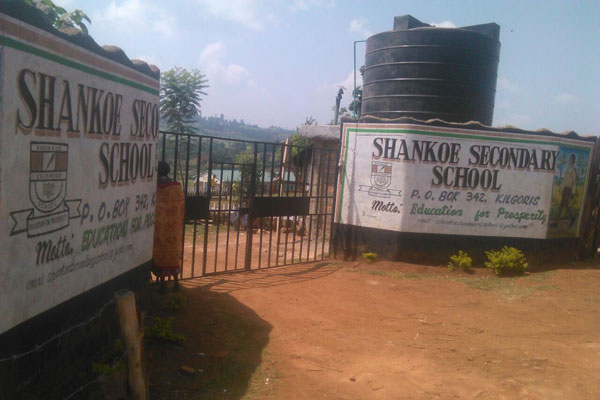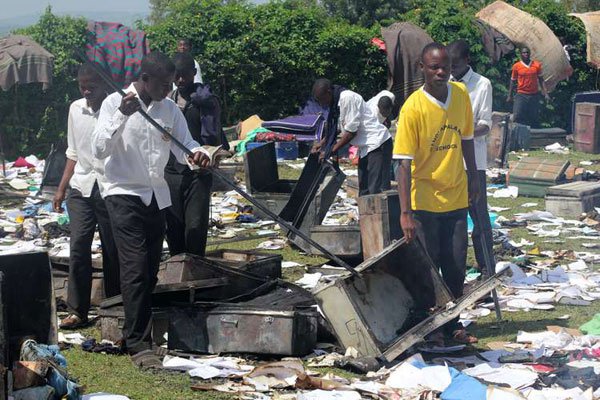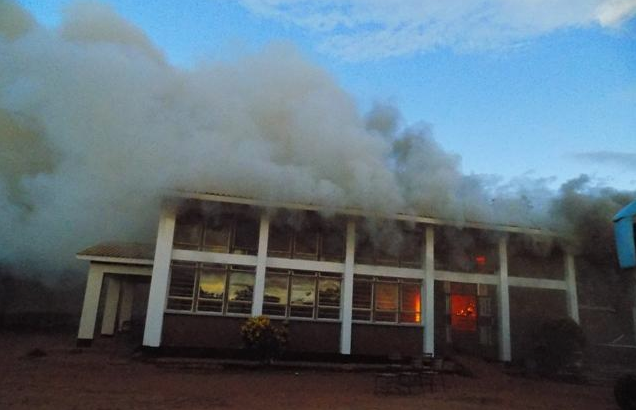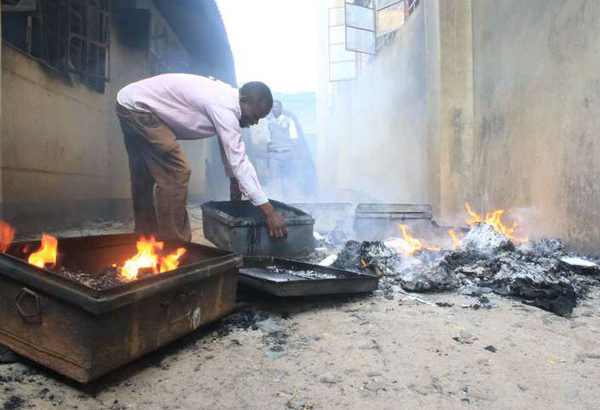Kenia / 13 de julio de 2016 / Por: DAVID ADUDA / Fuente: http://www.nation.co.ke/
Kenya’s education sector is once again reeling under a wave of student unrest in schools, characterised by massive destruction and loss of property.
Unlike in the past when students broke windows and a few other things, this time round they are burning buildings and property worth millions of shillings.
The wave of strikes underlines the concern that no permanent solution has been found to end violent strikes. There have been worse cases in the past like Kyanguli Secondary School in Machakos where 68 students were burnt to death in 2001 by riotous colleagues and the 1991 incident at St Kizito Mixed Secondary school in Meru where some 19 girls were burnt to death in their hostel. In both cases, the government was compelled to set up task forces to examine the root causes of the mayhem and recommend solutions.
However, the reports — Presidential Committee on Student Unrest and Indiscipline in Kenyan Secondary Schools and chaired by former Cabinet minister Lawrence Sagini (1991) and Taskforce on Student Discipline and Unrest (2001), headed by former Education Director Naomy Wangai (2001) — were hardly acted upon.
Then, as now, it was established that the riots were a consequence of ineffective administrative systems, unwieldy academic programmes, general indiscipline and external influences.
So far, the strikes have been recorded in several schools across the country, the worst at Itierio High School in Kisii County where students burnt seven hostels in an orgy of violence to protest supposedly high-handed administration that denied them a chance to watch a football match.
However, evidence has since emerged to demonstrate that was just a smokescreen. Underneath was a simmering rage arising from a combination of factors, among them drug abuse, inadequate facilities and poor management. Strikes are an aberration that must be dealt with.
RING LEADERS EXPELLED
Penalties for students are very clear. Ring leaders are expelled, others punished and the rest made to pay for the damages. To be sure, Education Cabinet Secretary Fred Matiang’i has categorically stated that the students will pay for the damage, turning the burden to parents.
For its part, the Teachers Service Commission (TSC) has interdicted principals, deputies and even teachers in some of the schools affected to allow for investigations into their role in the unrests.
Preliminary investigations in the cases, while faulting the students, have established that the principals, deputies and some teachers may have contributed through acts of commission or omission.
Further investigations are still ongoing to give conclusive findings. This is not possible if the officials are in office, which is the reason the employer had to act. It is duplicitous, therefore, for the unions, sponsors, boards of management and parents to contest actions against the officials.
Part of the problem with school administration is poor governance arising from poor selection and deployment of headteachers by TSC; lack of supervision by the ministry; weak boards of management and dysfunctional parents-teachers associations (PTA); and external interferences by politicians, sponsors and communities.
Arising from these, there are cases where schools are managed by ill-suited principals and deputies, as well as incompetent boards.
Some headteachers are let to stay in particular stations for decades, turning the institutions into personal property and resisting any change.
It is for this reason that the Naomy Wangai Report of 2001 recommended that no headteacher should stay in a school for more than five years, unless in very exceptional and special cases.
The point, therefore, is that a multi-pronged approach is needed in tackling the school strikes. Students who cause chaos in schools must be disciplined, but that does not mean exempting headteachers, teachers, management boards and sponsors who may be equally culpable.
Education officials at the county and district levels must also be brought to account when there are chaos in schools under their charge.
Fuente noticia: http://www.nation.co.ke/oped/Opinion/Multi-pronged-approach-needed-in-dealing-with-unrest-in-schools/-/440808/3290390/-/nbxj3kz/-/index.html











 Users Today : 80
Users Today : 80 Total Users : 35404558
Total Users : 35404558 Views Today : 93
Views Today : 93 Total views : 3334133
Total views : 3334133